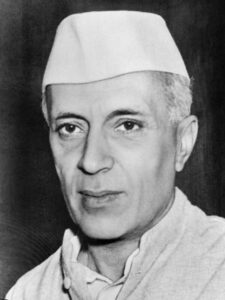Jawaharlal Nehru Biography:-

Jawaharlal Nehru was born on November 14, 1889, in Allahabad, India, into a prominent political family. His father, Motilal Nehru, was a wealthy barrister and a prominent leader of the Indian National Congress, while his mother, Swaruprani Thussu, came from a Kashmiri Brahman family.
Nehru had a privileged upbringing and received his early education at home under private tutors. He was deeply influenced by his parents’ progressive views and was exposed to various intellectual and political ideas from a young age.
In 1905, Nehru was sent to England to continue his education at Harrow School and later at Trinity College, Cambridge. During his time in England, he was exposed to Western thought and political ideologies, which would shape his worldview and future political outlook.
Despite being groomed for a career in law, Nehru was drawn to politics and social activism. He became increasingly involved in India’s independence movement, inspired by leaders such as Mahatma Gandhi and Annie Besant.
Overall, Nehru‘s childhood was marked by privilege, intellectual stimulation, and exposure to the political and social currents of his time, laying the foundation for his future role as a nationalist leader.
- Born :- November 14, 1889.
- College :- Horrow Cambridge.
- Political:- Indian National Congress.
- Key achievement:- First Prime Minister
- Key achievement:- First Foreign Minister.
Legacy and Impact of Jawaharlal Nehru:-
- Remember as one of the India’ greatest leader.
- Known for his vision of a secularism democratic.
- His contributions continue to shape India’s political, social and economic landscape.
- He is the one leader who held both Prime Minister and Minister of External Affairs on same time.